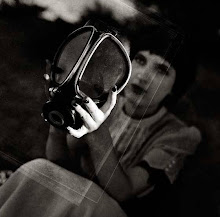 |
| Live Concert Stage |
 |
| Hip Hop Live Stage |
 |
| Drum 'n Bass Stage |
 |
| Psychedelic Trance Stage |
 |
| more than 8000 people and 100 artists |
ΚΕΝΟ ΔΙΚΤΥΟ
[Θεωρία, Ουτοπία, Συναίσθηση,
Εφήμερες Τέχνες]
INDIE FREE FESTIVAL # 22
3 stages of
underground cultures
SATURDAY 29
SEPTEMBER 2012
PEDION AREOS
PARK
athens / greece
STARTS 18.00
INDIE FREE / CONCERT STAGE
18:00 -18:30 DJEMBE LOCO [drums]
18:30 -19:15 FREQUENCY ON
[indie]
19:15 – 20:00 ODIOLAB [psy
ambient]
20:00 – 20:45 LIZARDS [rock]
20:45 – 21:30 EMPTY FRAME [indie]
21:30 – 22:15 NALYSSA GREEN
[indie]
22:15 – 23:00 LORD 13 [stoner]
23:00 – 23:45 Θ. ΑΝΕΣΤΟΠΟΥΛΟΣ [dark wave]
23:45 – 12:30 DROG_A_TEK
[experimental]
12:30 – 01:15 BABY GURU [indie]
01:15 – 02:00 ΜIKAEL DELTA [techno]
02:00 - 02:45 FUNDRACAR [reggae]
02:45 – 03:30 ZEN GARDEN [space
out]
03:30 – 04:15 THE BOY [indie]
04:15 – 05:00 TILBURY ON CLOVES
[new wave]
05:00 – 05:45 EYE LEVEL [rock]
HIP
HOP LIVE STAGE
STARTS 18.00
18.00 - 19.00 DJ DIFFER
19.00 - 19.40 DA BIZ
19.40 - 20.20 UNDER PREASSURE
20.20 - 21.00 POR HOUITOS
21.00 - 21.40 TFS
21.40 - 22.20 MONKEY MAN
22.20 - 23.00 ΚΥΚΝΕΙΟ ΑΣΜΑ
23.00 - 23.40 INTIFANTA
23.40 - 12.20 ANTINOMIA
12.20 - 01.00 OMERTA
01.00 - 01.40 DAGOBAH SYSTEM
+ DRUM N BASS
/ BREAKS ZONE
STARTS 02.00
at night
02.00 - 03.00 RESONANT STATUS
03.00 – 05.00 ENEMIES OF THE STATE
05.00 – end AENEAS
SMITH
PSYCHEDELIC
TRANCE STAGE
STARTS 22.00
22.00 – 23.00
VLASTUR
23.00 – 24.00
JUNIOR X
24.00 – 01.00
ENTON
01.00 – 02.15
NIKITAS
02.15 – 03.30 CONFO
03.30 – 5.00 MINDPHASER
vs. PSYCHO QUEEN
05.00 – 06.00
CRYSTAL ZERO
06.00 – end PACHANOI vs. CACTUS ARISING
To Indie Free Festival # 21 είναι μια
εφήμερη, αυτόνομη εκστατική ζώνη στον Μητροπολιτικό δημόσιο χώρο, είναι μια
γιορτή της Αυτονομίας, ένα πείραμα… Από το 1990 έως σήμερα οι εκδηλώσεις
του Κενού Δικτύου διοργανώνονται χωρίς εισιτήριο, χωρίς αμοιβές, χωρίς
ιδιωτικούς χορηγούς και εταιρίες security, χωρίς κρατικές
επιχορηγήσεις, χωρίς εκμεταλλευτικές και εμπορευματικές σχέσεις, χωρίς
κανένα οικονομικό κέρδος για κανένα από τους ακτιβιστές ή τους καλλιτέχνες
που συμμετάσχουν.
Σκοπός του Indie Free Festival είναι να
ξεπεράσει τα όρια του μακροβιότερου μουσικού φεστιβάλ της Ανεξάρτητης Σκηνής
στην Ελλάδα και να αποτελέσει παράδειγμα οργάνωσης και έμπνευσης για
αυτο-οργανωμένες προσπάθειες πολλών διαφορετικών ομαδοποιήσεων που θα καλύπτουν
όλα τα πεδία της καθημερινής ζωής. Φιλικές σχέσεις, συναίσθηση, κοινωνική
αλληλεγγύη και ευαισθητοποίηση... Ποιητική καθημερινότητα, εφαρμοσμένη
Ουτοπία, η Τέχνη του να Ζεις, να αμφισβητείς και να αλλάζεις τον ρυθμό της
πόλης σου με την δύναμη των επιλογών σου, με την δύναμη της συλλογικής
δέσμευσης, της αφοσίωσης, του αγώνα και της φαντασίας σου...
Να αλλάξουμε την Ζωή, Να αλλάξουμε τον Κόσμο!
Θέλουμε να δούμε τους δημιουργικούς και
κοινωνικά ευαισθητοποιημένους ανθρώπους αυτής της πόλης να
συν-διαμορφώνουν ομάδες συνάφειας, μεγάλες αυτόνομες παρέες φίλων που μοιράζονται
την ζωή τους, αγαπούν και εμπιστεύονται ο ένας τον άλλον, δρουν στον δημόσιο
χώρο πραγματώνοντας τα σχέδια τους. Θέλουμε να δούμε παρέες φίλων που με την
δράση τους θα προκαλούν ρήγματα στην κοινωνία, θα προκαλούν αλλαγές στον τρόπο
που ζούμε, δρούμε και σκεφτόμαστε, θα επιτίθενται ενάντια στην κυρίαρχη τάξη,
την βιομηχανία μαζικής κουλτούρας και στην γενικευμένη κοινωνική αποβλάκωση, θα
δίνουν συλλογικές απαντήσεις και κοινωνικές λύσεις στα καθημερινά προβλήματα,
τις επιθυμίες και τις ανάγκες μας, τις αγωνίες και τα όνειρα όλων μας.
Το
Κενό Δίκτυο, από το 1990 μέχρι σήμερα είναι μια μεγάλη παρέα φίλων, μια αγέλη
μητροπολιτικών νομάδων που συναντιούνται στο κέντρο της πόλης, μοιράζονται τις
επιθυμίες τους, τις ανάγκες τους και τα όνειρα τους, αποφασίζουν μαζί δράσεις
και κάνουν πράξη τις αποφάσεις τους στον Δημόσιο Χώρο.
Ενεργά κοινωνικά υποκείμενα στα χρόνια της εκμετάλλευσης που απεχθάνονται τα
χρήματα, την εργασία και τους μισθούς, ποιητές που φτύνουν τους κυβερνήτες
και τα αφεντικά, κατασκευαστές καταστάσεων που σχεδιάζουν εφήμερες
ονειρικές πολιτείες και αυτόνομες ζώνες, παραγωγοί του ήχου της ατέρμονης
πίεσης, πολιτισμικοί ακτιβιστές, καλλιτέχνες της συμβίωσης και υπερασπιστές της
κοινωνικής χειραφέτησης, ρομαντικοί ερωτευμένοι που ποθούν να ζήσουν ίσοι και
ελεύθεροι, νυχτερινοί διασαλευτές της κοινωνικής απάθειας, μεθυσμένοι πλάνητες
σε επικίνδυνους δρόμους και σκοτεινές συνοικίες, σχηματίζουν συλλογικά
δίκτυα, χώρους διαλόγου, λαβυρίνθους ιδεών, πρωτοβουλίες και πράξεις.
Η απελευθερωτική φιλοσοφία της καθημερινής ζωής, η επαναστατική τέχνη της
έκφρασης και της συνύπαρξης, η κοινωνική / πολιτική συμμετοχή στους αγώνες της
εποχής μας ισορροπούν μέσα στον καθένα μας σαν σε τεντωμένο σχοινί.
Να δημιουργήσουμε άπειρες μικρές και μεγάλες αντικαθεστωτικές
συλλογικότητες που θα βασίζονται στις κοινές επιθυμίες και ανάγκες και θα
προκαλούν άμεσες ρήξεις στον τρόπο που σκεφτόμαστε, στον τρόπο που ζούμε και
στον τρόπο που αγωνιζόμαστε.
Να πάρουμε την ζωή μας στα χέρια μας. Να μην ζήσουμε σαν Δούλοι!
Να μείνουμε άγρυπνοι μες στο σκοτάδι του κόσμου! Να μην αφήσουμε τις μέρες μας να πάνε
χαμένες! Να ζήσουμε, να γιορτάσουμε και να αγωνιστούμε σαν να είναι δικά
μας παιδιά όλα τα παιδιά που θα γεννηθούν στους αιώνες που έρχονται.
Λυσσασμένοι για Έρωτα, Ζωή, Ισότητα και
Ελευθερία.










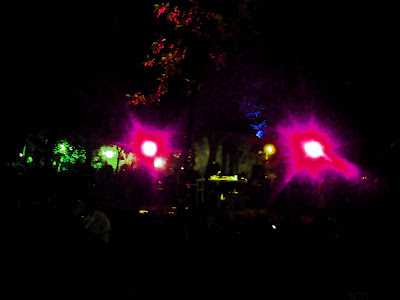








![VOID MIRROR [theory, info, global movement news]](https://blogger.googleusercontent.com/img/b/R29vZ2xl/AVvXsEiaLvlWRUHJgycn3xI3d8kfRy7JwD48VBDrUl4osdfXHWblUYSZrv_kakq0n4EYTxCnB4tBlqW3F3tCE7gdirCT2h7mjA2beX6e1tn4Sc5EFXsCxV1deIOXpLuwgjsv0Kn_ZURwlQ/s220/CeluBkCWQAAFgxB.jpg)

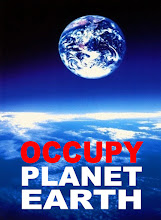










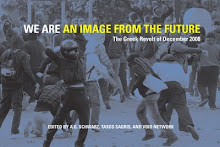


![READ TEXT ONLINE: WE ARE AN IMAGE FROM THE FUTURE [THE GREEK REVOLT OF DECEMBER 2008 ]](https://blogger.googleusercontent.com/img/b/R29vZ2xl/AVvXsEiSh9LwgbFVtp1LmXgtGFBHJd6XMGn7D1zhacFhu1rKb-ILRy-vEo9bDOQcqA3AMYp6grDF0h3lAZHW7HIPmPU-THY1GOBDE4NLSh_8amqgL7AnNLemp0tFOeKe6emqrfJk-1hPUw/s220/510T1GQ26KL._BO2%252C204%252C203%252C200_PIsitb-sticker-arrow-click%252CTopRight%252C35%252C-76_AA300_SH20_OU01_.jpg)





![THESES ON DRUGS [GREEK LANGUAGE]](https://blogger.googleusercontent.com/img/b/R29vZ2xl/AVvXsEiXbps2DJgHZ7MbN1LbTE9wlP-wedJMrC7UgMKj9u_WiSqzE7AGqKK_MDpdo8uCncOr1M_ij29TOenU19hiZtaaVytO4HrSAykfPr-TXsnXO6mfjCALzB10X27jPRFOydxBKUlk8g/s220/%25CE%2596%25CE%2597%25CE%25A4%25CE%2597%25CE%259C%25CE%2591+%25CE%25A4%25CE%25A9%25CE%259D+%25CE%259D%25CE%2591%25CE%25A1%25CE%259A%25CE%25A9%25CE%25A4%25CE%2599%25CE%259A%25CE%25A9%25CE%259D.jpg)








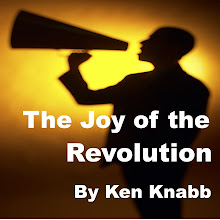




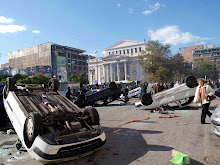
![GLOBAL EYE [LONDON section of VOID NETWORK]](http://1.bp.blogspot.com/_vSyk6SJoF1M/Sfr7KhauTxI/AAAAAAAACmM/nCtI6Kzenbg/S220/global+eye+photo.jpg)





